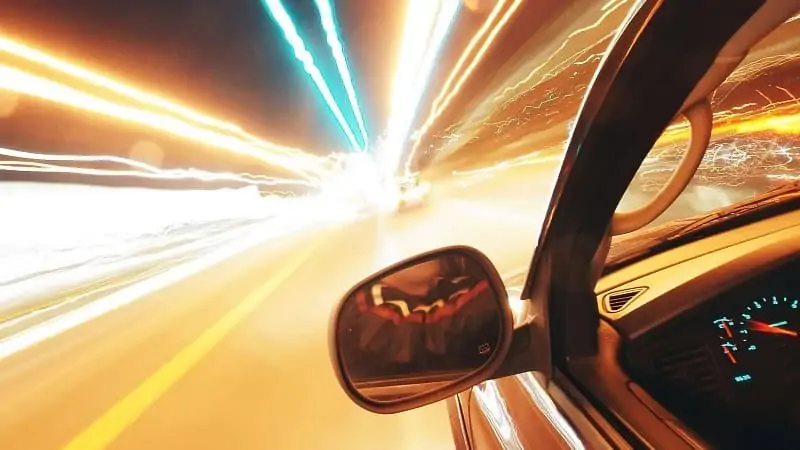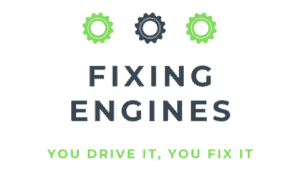Whether new or fairly used, automobiles have several means of passing a message to you when something is wrong. For instance, a light screech might mean that it needs attention on its brakes. A shrill sound from beneath the hood might signify that you need to check your belt.
In the same vein, your car might make a clunking sound when you’re driving. Have you noticed this when braking or accelerating? If you have, then you’re probably wondering why your car is making such clunking sounds.
A deteriorating constant velocity is the leading cause of clunking sounds when accelerating. A constant velocity (CV) is a shaft responsible for connecting the transmission to the wheels. When something affects them, they cause the clunking noises, signifying that it’s high time you check them out.
Other causes could be a bad drive shaft, low transmission fluid, transmission mounts, or shift solenoid. Whatever the case might be, clunking sounds are never pleasant, and they could signify the onset of a bigger problem. This post provides comprehensive details on the cause of clunking sounds and the best steps to solve this problem.
Why Do I Hear a Clunking Sound While Accelerating?

Sometimes, when driving at low speeds, your car seems perfect. There are no noise or alarming sounds, just the familiar sounds of your vehicle moving along the road. But, when you hit the accelerator to move faster, the sound changes.
What you hear is a disturbing clunking sound which only gets worse as you increase your speed. This sound signifies that something is amiss with your constant velocity.
The CV joints use special grease and are sealed with a plastic or rubber boot that remains in place with the help of two clamps. A problem occurs when the protective boot on the CV joints breaks. When this happens, the grease leaks out, allowing moisture and dirt into the CV joint.
The grease causes it to wear faster and finally fail due to corrosion or lack of lubrication. As the vehicle’s weight puts pressure on the damaged location and it shifts back and forth, you will hear a clicking, popping, or clunking sound.
How Do I Fix a Clunking Sound in My Vehicle?
While clunking sounds might not be dangerous at the onset, they could lead to other complications, leading to road accidents. To avoid such a scene, visit your mechanic as soon as you can.
Most times, the simple solution is to replace the boot and repack the CV with new grease. However, this is the fastest solution only if you detect this problem early. If the case is worse, your mechanic might have to replace the CV joint boot.
Most times, you cannot find this part separately; thus, you’ll have to buy the entire drive shaft, which is more expensive than replacing the CV joint alone. If you intend on changing the drive shaft yourself, ensure you get a breaker bar (torque wrench). You would also need the correct socket size to loosen the CV joint axle nut as it is tough to take off.
When you’re done fixing, you’ll have to re-torque the axle nut. You can find better instruction in the shaft’s manual to aid you in the fixing process.
Other Sounds That Signify That There’s Something Wrong with Your Vehicle

Aside from clunking, there are other noises that you should listen for as they also signify that there could be a problem with your automobile.
Car Noises at Slow Speeds
When moving at slower speeds, two sounds should cause an alarm. These are slapping and chirping. Both have different meanings and tell you the magnitude of the damage in your car.
If you hear a slapping sound that disappears as you increase your speed, then you probably don’t have to worry. However, if this sound becomes worse at a higher speed, it means you probably have a flat tire. Driving with a damaged tire can be extremely dangerous, especially if the problem could result in your tire blowing out while you’re on the road.
Driving with damaged tires carries significant penalties as well. So, if you hear slapping, pull over quickly and check your tires.
On the other hand, if you hear a chirping sound that gets worse as you speed up, one of your axles may be malfunctioning. You should get a mechanic to fix this for you as your wheels might lock up or become loose in the long run.
Car Noises When Accelerating and Braking
Loud squeaking or screaming noise while accelerating could indicate an engine belt issue. If the problem is your engine belt, then it’s probably worn or loose. It could also indicate that one of the belt’s pulleys is failing.
A loud rumbling noise could indicate a problem with your exhaust system. There could be a leak somewhere, and the rumbling means that your system is working overtime to deal with the extra exhaust gases.
If you hear grinding sounds when accelerating, your clutch or transmission may be malfunctioning. Aside from grinding, a loud rattling sound should also give you concern because it could signify several issues. It could signal that something has fallen loose underneath your automobiles, such as your exhaust system or catalytic converter.
If the rattling sound is coming from beneath your hood, it could be a problem with your oil levels. If the rattling sounds like it’s coming from within the vehicle, it’s usually nothing to be concerned about. It’s most likely just a stray piece of anything in your boot or glove compartment.
A weird ticking sound indicates that your car’s oil level is low. Ensure you pullover as soon as it’s safe to do so and check your oil levels if you hear a ticking.
If they’re okay, the ticking could be a sign of something considerably more severe. This indicates that your vehicle needs servicing.
If you hear screeching noises when you brake, it’s time to replace your brake pads. This screeching is the pads’ way of informing you that they’re worn out and you need to replace them right away.

